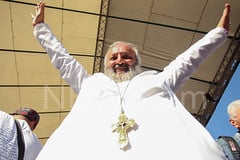
European leaders are unlikely to reach full agreement on visa restrictions for Russians. While the EU has been largely united since the start of the war and has come together to impose serious economic sanctions against Russia, there is a geographic reality that complicates any consensus among 27 countries with very different economic and political priorities, CNN reported.
"Countries in the west and south of the EU, who are somewhat protected from Kremlin aggression due to sheer distance, are quick to remind hawks that Russia is a very large part of the wider region of Europe. It is therefore not only extremely difficult, but probably not particularly productive, to simply ignore Russia. Once the war is over, European economies will want to re-establish ties with Russia. Not only is this beneficial to those countries, but it could also prove valuable in a post-conflict propaganda war to convince average Russians of the benefits of European values.
Strategically, most serious figures also agree that any post-war European security plans will have to involve Russia, and it's far better that Moscow is proactively involved and working with its European neighbors.
At the other end of the spectrum, there are those countries such as Poland, Estonia, Lithuania and Latvia who have already suffered at the hands of Russia quite a lot, both at the hands of the oppressive dictatorship of the Soviet Union and more recently from the threat of Putin's Kremlin.
These are the competing factors that make handling Putin and Russia so complicated.
Will the EU work with Putin if he remains in power after the war? If not, how different must the regime that follows be from Putin's to satisfy the bloc? What would need to be included in a hypothetical treaty to assure different European leaders that Russia will not provoke further conflict? What might the EU be willing to concede in order to broker a peace? It's worth remembering throughout all of this that Ukraine is now a candidate for EU membership.
All of these big questions create smaller questions, including what should be done during the conflict on visas. And the longer the war goes on, as the West's options for sanctions and retaliation become increasingly limited, the more of these questions will emerge.
The hard reality is that these smaller questions, headaches in themselves, must be balanced against whatever is the best-case, long-term outcome of this bleak period. And the blunt truth is that one thing will never change: Europe cannot simply ignore Russia.
















